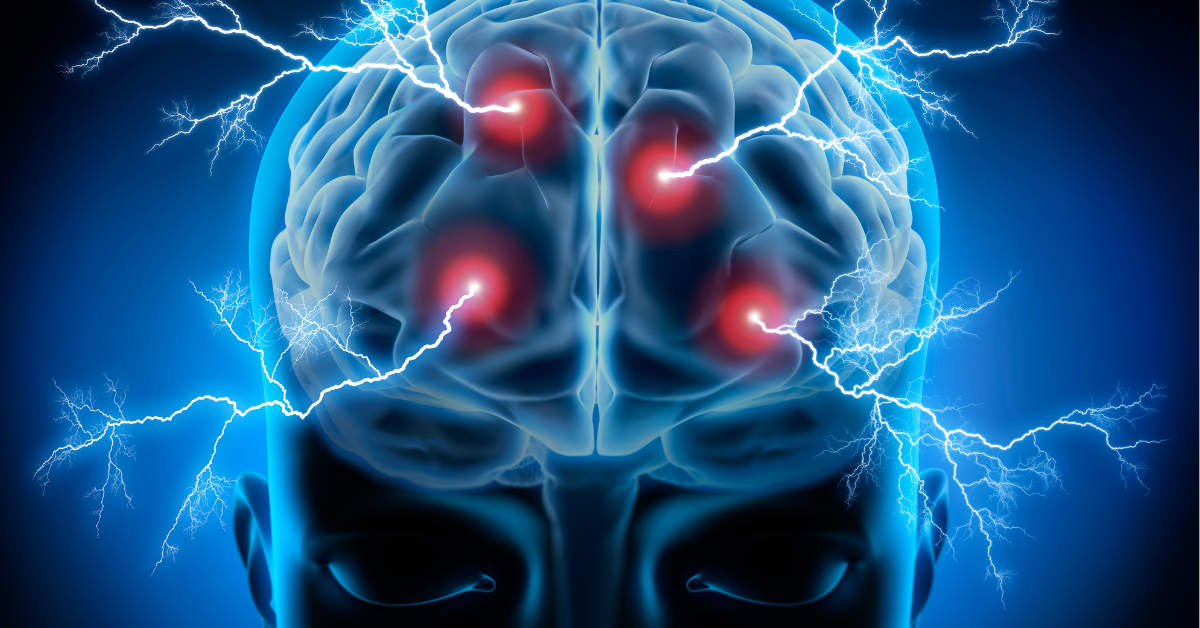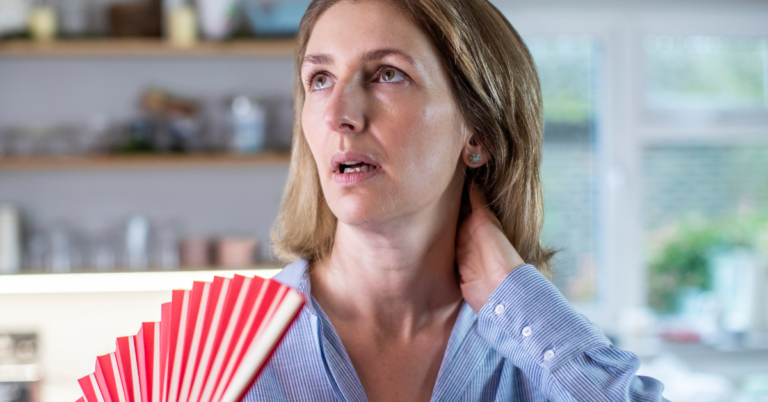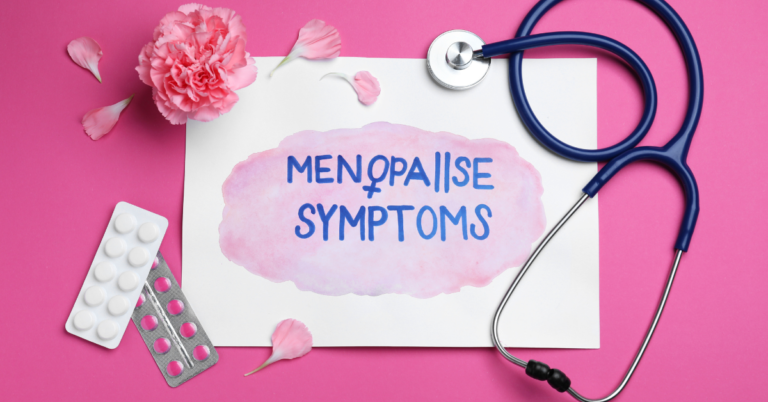Menopause And Mental Health: Exploring The Link Between Menopause And Anxiety/Panic Attacks
Menopause is a natural life stage with physical and emotional changes. Sadly, many women experiencing menopause faces mental health challenges like anxiety and panic attacks. Understanding the connection between menopause and women mental health is vital for effective treatment.
In this article, we’ll explore the causes, treatments, and strategies for managing mental health during menopause. Let’s empower ourselves to prioritize mental well-being in this transformative phase.
Understanding the Link Between Menopause and Mental Health Issues
The impact of menopause on mental health is multi-faceted, with various factors contributing to the overall well-being of women. Hormonal changes, such as the decline in estrogen and progesterone, can influence neurotransmitter activity and brain chemistry, potentially affecting mood and anxiety levels.
What are the signs and symptoms of an anxiety or panic attack?

Physical symptoms:
Rapid heartbeat
Shortness of breath
Dizziness or lightheadedness
Emotional symptoms:
Intense fear or dread
Feeling detached from reality or one’s body
Fear of losing control or dying
Cognitive symptoms:
Difficulty concentrating
Racing thoughts
Confusion
Potential Causes of Anxiety and Panic Attacks During Menopause
Curious about the triggers for overwhelming feelings of anxiety, during this life stage? Let’s explore this further.
Hormonal fluctuations
Hormone imbalances
Physical symptoms
Psychological factors
Lifestyle changes
Genetic predisposition
Preexisting anxiety disorders
Personal and social factors
Available Treatments for Anxiety and Panic Attacks
If you’re struggling with anxiety disorder or panic attacks, there are treatments available to help you manage your symptoms.
Cognitive-behavioral therapy (CBT)
Medications such as selective serotonin reuptake inhibitors (SSRIs) or benzodiazepines
Hormone replacement therapy (HRT)
Relaxation techniques, including deep breathing exercises and progressive muscle relaxation
Mindfulness-based stress reduction (MBSR)
Exposure therapy
Support groups or group therapy
Lifestyle modifications such as regular exercise, a healthy diet, and sufficient sleep
Stress management techniques, including time management and stress-reducing activities
Alternative therapies like acupuncture or yoga
Talk therapy or counseling sessions with a qualified therapist
Please note that it is important to consult with a healthcare or medical professional to determine the most suitable treatment approach for your specific situation.
Strategies for Managing Mental Health During Menopause

Managing your mental health during menopause can be a challenge, but there are strategies you can use to help you cope. Here is a list of strategies for managing mental health during menopause :
Stay informed about menopause and its potential effects on mental health.
Seek support from healthcare professionals, therapists, or support groups.
Practice stress management techniques such as deep breathing, meditation, or yoga.
Engage in regular exercise to promote physical and mental well-being.
Prioritize self-care activities that bring you joy and relaxation.
Maintain a balanced and nutritious diet to support overall health.
Ensure sufficient sleep and establish a consistent sleep routine.
Consider hormone therapy or other medical interventions if appropriate and recommended by your healthcare provider.
Practice mindfulness and cultivate self-awareness of your thoughts and emotions.
Set realistic expectations and goals, adjusting to the changes of menopause.
Foster strong social connections and seek emotional support from loved ones.
Incorporate activities that promote mental stimulation and cognitive well-being.
Manage menopausal symptoms effectively to minimize their impact on mental health.
Explore complementary therapies such as herbal supplements or aromatherapy, if desired, and safe under professional guidance.
Be kind to yourself and practice self-compassion throughout the menopausal journey.
Remember that every individual’s experience of menopause is unique, so it’s essential to find strategies that work best for you. Consult with healthcare professionals for personalized advice and guidance.
Reducing Stressors in Life

Here are some common stressors that may contribute to menopause-related anxiety:
Hormonal changes
Physical Menopausal symptoms like hot flashes, night sweats, and sleep disturbances
Life transitions: Significant life changes such as career transitions, empty nest syndrome, or caring for aging parents, can be stressful and lead to anxiety.
Self-image and body change: Changes in weight, appearance, and body functions can lead to self-esteem issues and increased anxiety.
Relationship challenges: Menopause may impact intimate relationships, causing tension, communication difficulties, and emotional stress.
Aging and mortality concerns: A heightened awareness of aging and mortality, which can trigger existential anxiety and panic.
Work-related stress: Job-related pressures, challenges, and workplace dynamics can contribute to anxiety and panic attacks during menopause.
Social expectations and stereotypes: Societal expectations and stereotypes around aging and menopause can lead to stress and anxiety about fitting into societal norms.
Taking Charge of Your Mental Health During Menopause
Taking control of your emotions during this time empowers you to prioritize your overall well-being. Understanding the link between menopause and anxiety/panic attacks is key. Recognizing the signs of an impending anxiety attack aids in better management.
Practice relaxation techniques like deep breathing and progressive muscle relaxation to cultivate calmness. Stay mindful of your feelings and prioritize self-care.
Discover activities that bring joy and carve out time for yourself to do what makes you happy. Self-care enhances your ability to cope with the physical and emotional changes of menopause.
The Impact of Menopause on Relationships

Menopause, with its hormonal fluctuations, can impact relationships, calling for open communication and understanding. Anxiety and panic attacks are common, affecting emotional stability and straining connections.
Emotional changes: Hormonal imbalances lead to mood swings, irritability, and sensitivity, affecting interactions with loved ones.
Coping strategies: Learning self-care and seeking professional help (like therapy) are vital for healthy relationships.
Empathy: Encouraging loved ones to understand menopause fosters a supportive environment where feelings can be discussed without judgment.
Recognizing the link between menopause symptoms, anxiety, and panic attacks highlights the importance of patience and compassion. Open dialogue and understanding needs foster strong bonds during this transition.
The Importance of Self-Care

Undeniably, prioritizing self-care during this critical life phase serves as a vital aspect in mitigating the adverse effects of sleep disturbances and anxiety on overall well-being. The connection between menopause, mental health, anxiety, and panic attacks necessitates implementing self-care strategies that promote emotional and physical health.
By engaging in activities that foster relaxation, stress reduction, and positive coping mechanisms, individuals can significantly improve their quality of life during menopause. Furthermore, taking an active role in one’s self-care can diminish the severity of symptoms associated with anxiety and panic attacks.
Implementing regular exercise routines is proven to have a multitude of benefits for those experiencing menopausal symptoms such as hot flashes, mood swings, insomnia or fatigue; additionally promoting mental health by releasing endorphins which aid in reducing stress levels.
Maintaining a healthy diet rich in essential vitamins and minerals supports both physical and cognitive function while addressing nutritional deficiencies commonly linked with mood disorders.
Seeking professional support from healthcare providers or therapists helps individuals navigate complex emotions tied to hormonal fluctuations while providing guidance on effective management techniques tailored to individual needs.
Lastly, cultivating social connections is crucial for fostering emotional resilience during this transitional period; sharing experiences with others who are navigating similar challenges fosters empathy and understanding while combating feelings of isolation.
It is through these holistic approaches toward self-care that women can maintain mental health equilibrium amidst the upheavals brought about by menopause-related depression, anxiety and panic attacks.
Frequently Asked Questions

Is menopause the only factor that can cause anxiety/panic attacks?
No, menopause is not the only factor that can cause anxiety or panic attacks. Other potential causes of anxiety symptoms can include stress, hormonal imbalance, genetic predisposition, and certain medications.
Additionally, lifestyle factors such as drinking alcohol, lack of sleep, and smoking can also increase the likelihood of panic attacks. Therefore, it is important to identify the underlying cause of anxiety or panic attacks in order to find the most effective treatment options.
Are there lifestyle changes that can be made to reduce anxiety/panic attacks?
To reduce anxiety and panic attacks, make lifestyle changes. Manage stress with techniques such as:
Deep breathing and progressive muscle relaxation.
Engage in regular exercise to reduce physical symptoms of anxiety and improve overall mental health.
Maintain a healthy and balanced diet, while limiting your intake of caffeine and alcohol, to help reduce anxiety.
Ensure sufficient sleep and prioritize relaxation techniques such as mindfulness and meditation.
Are there any natural remedies that can help manage mental health during menopause?
Menopause can be a difficult transition for many women, and it can affect mental health significantly. Thankfully, there are some natural remedies that may help manage mental health during this time. Aromatherapy, such as lavender and chamomile scents, can help to reduce stress and anxiety.
Supplements such as omega-3 fatty acids, zinc, and magnesium can support brain health and reduce the risk factors of depression. Regular exercise can improve mood and reduce stress hormone levels. Finally, engaging in activities such as yoga, meditation, and tai chi can help to reduce symptoms of anxiety and panic attacks.
Does everyone experience anxiety/panic attacks during menopause?
Not every woman experiencing menopause goes through severe anxiety or panic attacks. While some women may feel increased anxiety and overwhelmed during this phase, others may not experience significant changes in their mental health. It’s crucial to acknowledge that every woman’s journey through the menopause transition is unique, and the impact on mental health can vary widely.
Are there any long-term effects of anxiety/panic attacks during menopause?
It is unclear whether anxiety and panic attacks experienced during menopause have any long-term effects. Peer-reviewed studies have suggested that menopausal women who experience these symptoms may be more likely than most women to develop depression or anxiety later on in life. Click here to access a review study on this topic
However, other studies have not found any correlation between anxiety/panic attacks during menopause and long-term mental health issues.
It is important to note that anxiety/panic attacks during menopause are not necessarily indicative of a more serious underlying mental health condition. Rather, they may simply be a normal part of the menopausal transition.
Summary
Menopause can be a difficult time for many women and mental health issues such as anxiety and panic attacks can take a toll. Fortunately, there are treatments and strategies available to manage these issues. Taking charge of your mental health during menopause is key, and it’s important to reach out for help if needed.
By understanding the potential causes of anxiety and panic attacks during menopause, and exploring available treatments and strategies for managing mental health, women can better cope with the physical and emotional changes of this life stage.
Take a look at other important information relating to Menopause:
Healthy Eating for Menopause Wellness: Nourishing Your Body
Discover The Ultimate Fitness Routines For Ageless Women Over 50







